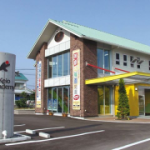
It may come as a surprise to some that the country of Japan, which boasts visually stunning landscapes, innovative technologies, and a rich history, is also the epitome of environmental consciousness. When I first came to this country, I did not expect such practices to be quite integrated into everyone’s daily life. The integration of eco-friendly practices is not only beneficial to the environment and earth, but also to our health and well-being. Here is what you ought to know about sustainability tips and tricks in Japan on how to live sustainably in Japan.
Energy Efficiency at Home
In Japan, houses are built with energy conservation factors incorporated into their standard. People in many homes today use LED bulbs because they are power-saving and have a longer durability. HVAC systems can have energy-efficient modes and everyone will normally use the devices at a lesser frequency. Appropriate use of insulation ensures that homes do not require extreme heating early in the winter season or extreme cooling late in the summer, resulting in minimal energy usage. Adapting these practices has enabled me to be more sensitive to my energy consumption and its effects on the environment.
A genuinely useful suggestion is to turn on fans instead of having all appliances on simultaneously. Especially in the hottest months of the year, instead of using only air conditioning, using an electric fan can make the air in the room cooler faster and with lesser energy requirements. Compared with air conditioners, fans consume less of electricity while they could also deliver comfortable space conditions when properly employed. Blackout curtains are also great if your residence is poorly ventilated since it is pretty efficient at keeping the room cool in the summer and warm in the winter.
Installing Solar Panels
If your apartment permits or if you are a homeowner, then it is advisable for you to consider the installation of solar panels. Solar panels convert the energy from the sun to electricity and the use of solar panels helps save on conventional sources of electricity as well as helps the world curb pollution. In Japan today, there are so many incentives and subsidies offered by local governments to make the use of solar panels possible and environmentally friendly for many homes.
Solar panels can help supply a large portion of the total energy consumption of a household, particularly in regions that have a lot of sunny days. It can be said that such investments are long-term, and the reward in the form of lower energy costs and saving the planet makes it worth it. A friend of mine who had solar panels installed after moving into their new place shared that since then, they had saved a significant amount of money which they had previously spent solely on monthly electricity bills.

Public Transportation and Cycling
Japan is one of those countries that has the best and the most efficient public transport systems in the world. There are lots of well-organized train and bus lines so it can be very easy to go around without a car. Concerning punctuality and reliability, the trains in Japan are probably the best that I have ever traveled in. For shorter distances, cycling is also an eco-friendly way to do whether you are going to work or to your nearest convenience store. Some of the cities allow the use of bikes, and you can see specialized bike lanes and even parking zones. Cycling is not only environmentally friendly but is also one of the most enjoyable means of commuting and exercising while discovering new sights of the city.
So, it is not only comfortable to take public transport but also ecological. The use of modern trains and buses ensures that you minimize your carbon footprint as compared to when you are using a car. Also, the transport system is well developed, making it very easy to get to almost any place of choice without necessarily owning a car.
Recycling
Recycling in Japan is a very intricate procedure. The different types of waste such as burnable waste, non-burnable waste, plastics, bottles, and the different colors of glass have allocated specific days for collection. Households are provided with special instructions on how to properly sort waste. At first, it can be very confusing, but after some time it becomes a very good habit to practice that actually helps you realize how much waste you produce and how you can avoid it.
Enhanced waste management correctly disposes of recyclable items by sorting them properly to minimize the amount of waste that goes to the landfill. This ensures that recycling is done in the best way possible as impacts on the environment are greatly reduced through the conservation of resources. Every city or ward has its own rules as well as designated plastic bags, so it is important to get a copy of the waste disposal flyer at the city hall as soon as you move into a new location.
Water Conservation
It is crucial in Japan to have measures in place that will help conserve water such as reducing showering duration, repairing leaks, and using efficient appliances contribute to the efforts. Most of the Japanese-style toilet facilities have modern technology toilets that only require a small amount of water for every flush, hence saving a lot of water in the long run.
Another good example is using a bucket to collect water while waiting for the shower to heat up. This water can then be used for washing dishes or to water the plants and hence, save a lot of water in the process. Also, efficient use of water can be achieved by putting more emphasis on the use of water-saving faucets and showerheads. If you live in the countryside, you can also purchase a rain collector tank that comes in handy especially in the monsoon season.
Buying Clothes or Appliances from Second-Hand Shops
Thrifting is a popular activity in Japan. Almost everything you need, starting from clothes, furniture, electronic devices, kitchenware, etc., can be purchased in second-hand stores including BookOff, HardOff, and 2nd Street. It is cheap and at the same time, it decreases the consumption of new goods and promotes an eco-friendly way of living.
Japanese people are noted for having quality second-hand items, and you can get products that are almost new at a throwaway price. It then means that you are part of the second-hand economy which is normally associated with re-used and recycled products as opposed to newly manufactured ones.
Sustainable Food Choices
Japanese cuisine initially focuses on the use of fresh, seasonal, and local produce. Purchasing food from local farmers and participating in the farmers’ markets helps in supporting local farmers and is also environmentally friendly since it eliminates the need for long-distance transportation of food. Arranging your own kitchen garden has been quite productive and sustainable for me. Also, by decreasing the intake of meat products and increasing the use of plant-derived foods we can make a difference.
Incorporating more plant foods into the diet is not only good for health but also contributes to reducing greenhouse gas emissions due to meat production. Even small measures such as engaging in “Meatless Mondays” or trying out other varieties of Japanese vegetarian food can also help a lot.
DIY Your Own Stuff
Organic existence is one of the most fulfilling in that you perform so many tasks on your own. DIY works can encompass anything from making cleaners at home to finding creative ways to make furniture from scrap items. Apart from cutting costs of having to go out and make new purchases, it gives one the freedom of decorating their home in the most unique way possible.
For instance, preparing your own cleansers using natural substances such as vinegar, baking soda, or essential oils is environmentally friendly and cheaper as well. Also, if you decide to use only the furniture that has been given to you, or make up new items from those that have already been used, you are free to remodel it, create a new skirt, transform it into a new wardrobe with the ability to match it to your décor style.
Eco-Friendly Shopping
Habits Concern about the environment manifests in shopping habits in Japan. A common practice is for supermarkets to set a fee for their plastic bags as a way of promoting the use of their own bags. People should avoid single-use purchases since this creates a chance for the stores to provide refill services for things such as detergents and shampoos, which greatly minimizes plastic use. It is also a good practice to bring your own shopping bag made of ecofriendly products like recycled or environmentally friendly woven bags to reduce the amount of plastic that is being used.
Another wonderful practice is that of patronizing local and sustainable brands. Almost all Japanese firms have embraced the environmental cause and provide products that are made from organically produced materials. When you opt for these brands, you contribute to better and more environmentally friendly approaches being used by other concerned firms.
Participating in Community Clean-Ups
There is a high level of community participation in Japan when it comes to neighborhood causes as it is part of the Japanese norms and values. This type of clean-up event is not unusual, where groups of people from a particular area go around to pick up trash. It is a great opportunity to make friends, be healthy and give back to the community.
These community clean-ups serve the dual benefits of not only cleaning up the local area but also promoting civic responsibility and community bonding amongst the residents. It is one of the best ways to express gratitude and contribute to the improvement of environmental issues.
I hope this guide encourages you to adopt greener habits while in the Land of the Rising Sun. The movement towards sustainability is not just a glamorous transition; it is creating moments of making conscious decisions in life, which shape a sustainable society and the world.















